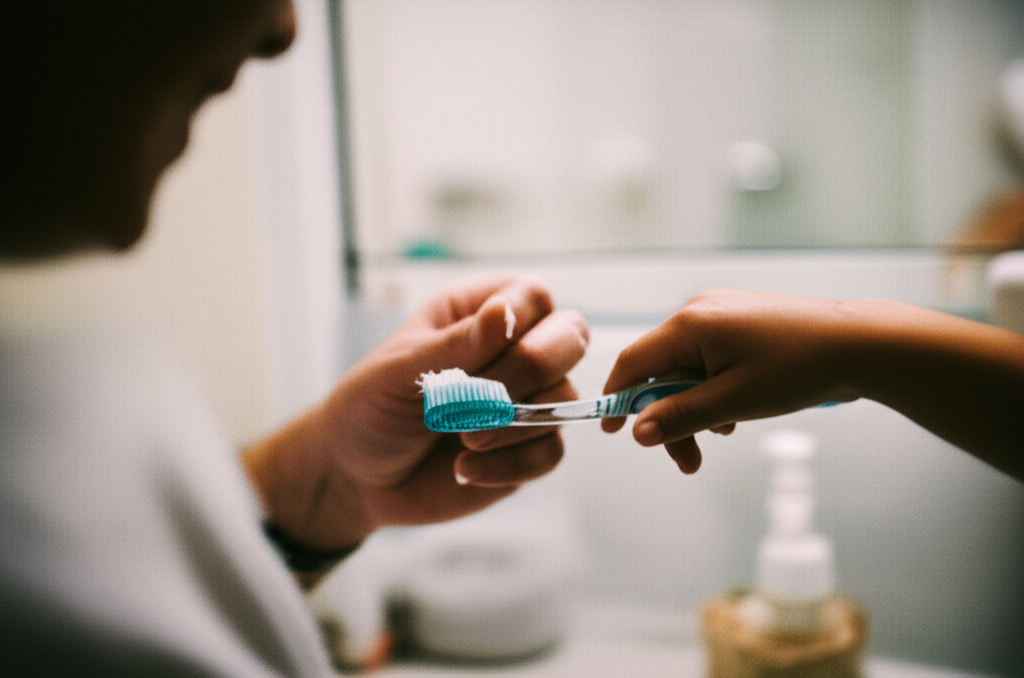The Science of Sleep: Boost Your Health Today
Ellie Moore

Photo: The Science of Sleep: Boost Your Health Today
The Science of Sleep: Boost Your Health Today
Sleep is more than just a nightly ritual it’s a cornerstone of your overall health and well-being. While we often take sleep for granted, its impact on physical, mental, and emotional health cannot be overstated. In this article, we’ll delve into the fascinating science of sleep and uncover practical tips to enhance your sleep quality, so you can lead a healthier, more energized life.
Why Sleep is Essential for Your Health
Sleep plays a critical role in maintaining various bodily functions. From repairing cells to regulating hormones, sleep acts as the body’s natural reset button. Here’s why you need to prioritize it:
1. Physical Restoration
During sleep, your body works overtime to repair muscle tissues, synthesize proteins, and release growth hormones. This is why a good night’s sleep is vital for recovery after exercise or illness.
2. Cognitive Function and Memory
Sleep enhances brain function by consolidating memories and clearing out neurotoxins. The deep stages of sleep, particularly REM sleep, are essential for problem-solving, learning, and creativity.
3. Emotional Well-Being
Lack of sleep can disrupt your mood-regulating neurotransmitters, increasing stress and irritability. Chronic sleep deprivation is linked to anxiety and depression.
4. Immune System Support
A robust immune system relies on adequate sleep. Research shows that people who get less than six hours of sleep per night are more susceptible to colds and infections.
Understanding the Sleep Cycle
To fully appreciate the science of sleep, it’s important to understand its structure. Sleep consists of several stages, each serving unique purposes:
Stage 1: Light Sleep
This transitional phase is where you drift from wakefulness to sleep. It’s brief but crucial for preparing your body for deeper stages.
Stage 2: Stabilizing Sleep
In this stage, your heart rate slows, and body temperature drops. Brain waves begin to slow, promoting relaxation.
Stage 3: Deep Sleep
Known as slow-wave sleep, this stage is vital for physical restoration. It’s when your body does most of its repair work.
Stage 4: REM Sleep
Rapid Eye Movement (REM) sleep is where dreaming occurs. This stage is essential for cognitive and emotional health, as your brain processes memories and emotions.
Each night, your body cycles through these stages multiple times. Disruptions in this process can lead to poor sleep quality.
The Science-Backed Benefits of Quality Sleep
When you consistently get quality sleep, the benefits are transformative. Let’s explore how improving your sleep can boost your health:
1. Enhanced Brain Performance
A well-rested brain is sharper, more focused, and better at solving problems. Sleep also enhances decision-making skills and creativity.
2. Improved Heart Health
Studies show that proper sleep helps regulate blood pressure and reduce inflammation, lowering the risk of heart disease and stroke.
3. Weight Management
Sleep impacts hunger-regulating hormones like ghrelin and leptin. Poor sleep increases cravings for high-calorie foods, contributing to weight gain.
4. Better Skin Health
Ever heard of "beauty sleep"? During deep sleep, blood flow to the skin increases, promoting repair and reducing the signs of aging.
Practical Tips for Better Sleep
Achieving quality sleep doesn’t have to be complicated. Incorporate these tips into your routine to optimize your rest:
1. Stick to a Sleep Schedule
Go to bed and wake up at the same time every day, even on weekends. Consistency reinforces your body’s internal clock.
2. Create a Relaxing Bedtime Routine
Engage in calming activities like reading, meditation, or a warm bath to signal to your body that it’s time to wind down.
3. Optimize Your Sleep Environment
- Keep it Cool: A room temperature of 60-67°F is ideal.
- Block Out Light: Use blackout curtains or a sleep mask.
- Reduce Noise: Consider white noise machines or earplugs.
4. Limit Screen Time
Blue light from screens interferes with melatonin production. Avoid devices at least an hour before bed.
5. Watch Your Diet
Avoid heavy meals, caffeine, and alcohol close to bedtime. Instead, opt for sleep-friendly snacks like bananas, almonds, or herbal teas.
6. Exercise Regularly
Physical activity can improve sleep quality, but avoid vigorous workouts late in the evening as they can be stimulating.
Common Sleep Disorders and How to Address Them
Millions of people struggle with sleep disorders that interfere with their ability to rest. Here are some common ones and solutions:
1. Insomnia
Difficulty falling or staying asleep can be caused by stress, anxiety, or poor sleep habits. Cognitive-behavioral therapy for insomnia (CBT-I) is highly effective.
2. Sleep Apnea
This condition involves interrupted breathing during sleep. A CPAP machine or lifestyle changes like weight loss can help.
3. Restless Leg Syndrome
Uncomfortable sensations in the legs can disrupt sleep. Stretching, massages, and certain medications can provide relief.
Frequently Asked Questions (FAQs)
Q: How much sleep do adults need?
Most adults require 7-9 hours of sleep per night, though individual needs may vary.
Q: Can naps replace lost nighttime sleep?
While naps can boost alertness, they’re not a substitute for consistent, high-quality nighttime sleep.
Q: What are natural ways to fall asleep faster?
Try relaxation techniques like deep breathing, progressive muscle relaxation, or listening to calming music.
Take Action Today for Better Sleep
The science of sleep is clear: prioritizing rest is one of the best things you can do for your health. Start by implementing the practical tips outlined in this article and make sleep a non-negotiable part of your wellness routine.
Ready to transform your health through better sleep? Share your thoughts, tips, or experiences in the comments below, and don’t forget to pass this article along to friends and family who might benefit!
Finance & Investment
View All
October 28, 2025
World Finance Payment Help GuideMaster expert SEO content to stand out. Learn to create valuable, authoritative content that ranks high, builds trust, and drives traffic.
Ellie Moore

May 3, 2025
Nissan Finance Phone SupportUnlock online visibility & growth with expert SEO content. Blend technical optimization with valuable, user-centric writing that truly helps your audience.
Ellie Moore

August 19, 2025
Exeter Finance Auto Loans ReviewMaster expert SEO content to dominate search. Create high-value, authoritative content that Google and users love, leveraging E-E-A-T for top rankings.
Ellie Moore

June 17, 2025
MS in Finance What You Need to KnowUnlock higher rankings & engaged audiences with expert SEO content. Learn to create valuable, E-E-A-T-driven content that satisfies search engines & users.
Ellie Moore

July 25, 2025
Google Finance TSLA Price TrendsGo beyond keywords! Create expert SEO content that ranks high, resonates with users, and builds authority using E-E-A-T and user intent strategies.
Ellie Moore

April 17, 2025
Ondo Finance and the Future of DeFiUnlock top rankings & authority with expert SEO content. Learn the blueprint to create valuable, E-E-A-T-driven material that stands out.
Ellie Moore
Insurance
View AllNavigate dental insurance with our guide. Find essential plans for comprehensive coverage, financial security, and peace of mind for you or your business.
Ellie Moore
Find the cheapest car insurance deals! This guide helps policyholders save money and agents offer competitive rates for smart, affordable coverage.
Ellie Moore
Navigate healthcare's future. Discover essential health insurance companies for robust, affordable coverage, ensuring peace of mind for policyholders & pros.
Ellie Moore
Secure your home with premium insurance. This guide helps you navigate quotes, find comprehensive protection, and achieve peace of mind against unforeseen damag...
Ellie Moore
Overpaying for car insurance? Discover top-rated solutions for optimal coverage & value. Protect your finances with our comprehensive guide.
Ellie Moore
Insure your valuables! Learn what’s covered, from antiques to art, and how to ensure proper protection for collectibles.
Ellie Moore
Education
View AllUnderstand dyslexia and discover effective ways to support dyslexic students in the classroom. Learn proven strategies to improve learning outcomes.
Read MoreOpen educational resources are breaking down barriers to knowledge. Learn how free learning materials are changing the global education scene.
Read MoreHelp students master metacognition! Learn how teaching students to think about their thinking can improve problem-solving and critical thinking skills.
Read MoreThe digital divide limits education access. Explore strategies and initiatives to bridge this gap and ensure global learning equality.
Read MoreUnschooling is redefining education. Learn how this self-directed approach works and why more families are embracing it as an alternative to traditional schooling.
Read MoreStrong school-community partnerships can drive student success. Discover the benefits and strategies for effective collaboration.
Read MorePopular Post 🔥
View All
1
2
3
4
5
6
7
8
9
10
Health






Automotive
View All
July 10, 2025
Top Tips From Expert Automotive Locksmiths
Get expert tips from automotive locksmiths! Your ultimate guide to car key & lock security, covering lockouts, lost keys, and programming.

September 2, 2025
How To Use An Automotive Dent Puller Effectively
Banish car dents like a pro! Our guide shows you how to use automotive dent pullers for DIY repair, saving money & restoring your car's look.

August 20, 2025
Best Automotive Subwoofer Picks This Year
Transform your car audio! Discover the best automotive subwoofers for deep bass & immersive sound. Get expert picks & choose your ideal car subwoofer.

September 7, 2025
Blue Ridge Automotive Trusted Car Repairs
Worried about car repairs? Learn why trust matters. Blue Ridge Automotive offers reliable service, ensuring your safety, savings, and peace of mind.

September 8, 2025
Country Automotive Local Experts Who Care
Country driving demands trusted auto repair. Learn why local experts who genuinely care are essential for your vehicle's reliability and your peace of mind.

August 4, 2025
Best Automotive Battery Options For Your Vehicle
Demystify car batteries! Discover why they're vital, understand CCA, Ah, & RC, and pick the perfect battery for reliable starts & vehicle longevity.

















